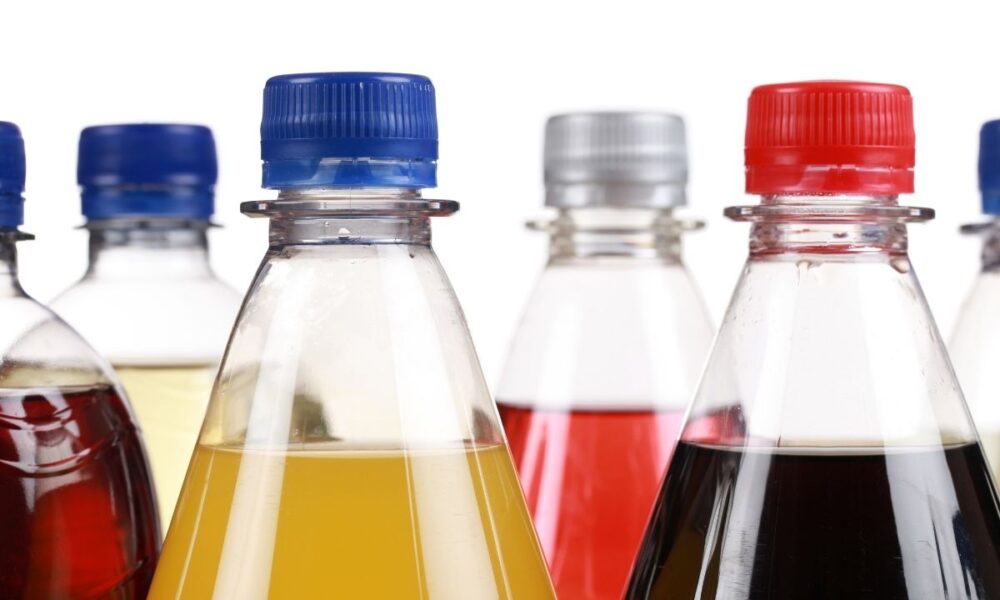As top federal officials gathered in the capital on Monday to promote a new push to restrict soda and junk food from SNAP purchases, a Texas food access expert was hundreds of miles away, explaining how recent changes to the same program have expanded healthy options for people experiencing poverty.
U.S. Health and Human Services Secretary Robert F. Kennedy Jr. and Agriculture Secretary Brooke Rollins hosted a joint press event in Washington as part of President Donald Trump’s “Make America Healthy Again” initiative, unveiling new SNAP waivers and calling for broader federal restrictions on sugary drinks, as previously covered by The Dallas Express.
“If you want to buy a sugary soda — the U.S. taxpayer should not pay for it,” Kennedy said. “The U.S. taxpayer should not be paying to feed kids foods, the poorest kids in the country, that will give them diabetes.”
The Breakdown:
- Robert F. Kennedy Jr. wants to ban SNAP users from buying soda nationally.
- New waivers approved for Florida, Texas, and four other states on Monday.
- Kennedy and Rollins say the goal is to improve health and reduce Medicaid costs.
- Meanwhile in Texas, advocates say online SNAP expansion is helping.
- The tension underscores a national debate on food access vs. government regulation.
Speaking at the Great American Farmers Market in Washington, Kennedy said sugary drinks and candies make up nearly 17% of current SNAP expenditures and argued the government “pays twice” — first through SNAP benefits, then through the downstream cost of chronic diseases.
Rollins echoed that message.
“One way … is disallowing taxpayer-funded benefits to purchase unhealthy items like soda, candy, and other junk food,” Rollins explained. “SNAP is a supplemental nutrition program meant to provide food benefits to low-income families … essential to health and well-being.”
Rollins signed new waivers on Monday for Florida, West Virginia, Oklahoma, Texas, Louisiana, and Colorado. These come in addition to previous waivers in Arkansas, Utah, Idaho, Indiana, Iowa, and Nebraska, which restrict soda and candy in various forms starting in 2026.
In her remarks, Rollins framed the effort as both fiscally responsible and morally urgent, citing statistics about obesity, diabetes, and mental health challenges in children.
“Over 75% of American youth between the ages of 17 and 24 are ineligible for military service because of obesity, poor physical fitness, or mental health challenges,” explained Rollins.
Yet some believe Kennedy and Rollins’ work to limit soda to promote health is misguided.
“The problem with soda consumption in the U.S. is not SNAP users,” Hilary Seligman, a public health researcher at the University of California, San Francisco, previously told The New York Times. “If you try to solve this problem using SNAP as a lever, so only SNAP people are impacted by it, what we’re likely to do is just increase stigma for people who are trying to make ends meet.”
Some former Obama and Biden officials agree with Seligman.
“It doesn’t pay for everyone’s food for the entire month,” former Agriculture Secretary Tom Vilsack told NYT. “So what would prevent people from spending their own money on sugary drinks or soda? The notion of restricting it for nutritional purposes really isn’t a valid reason.”
While the Trump administration officials were speaking about SNAP, Celebrindal Roberts, procurement and logistics manager for Farmshare Austin, was addressing attendees at the Southern Family Farmers and Food Systems Conference, held at Texas State University.
Roberts offered a more local perspective on SNAP, noting that her nonprofit has accepted SNAP since 2016 and began accepting online SNAP in October 2024. She described online payments as a “game-changer,” explaining that they reduce delivery and administrative costs, allow for unattended home delivery, and increase access to healthy food for people in areas with limited grocery infrastructure.
“You sell more food with Double Up Food Bucks and SNAP online,” Roberts said.
Double Up Food Bucks (DUFB) is a program that allows SNAP users to double the value of their benefits when buying fruits and vegetables. Roberts praised the program but noted it currently does not cover canned goods or honey, which limits its reach in some food-insecure households.
Roberts also said the online system has improved safety for delivery drivers and staff by reducing the need for carrying cash. Refunds from canceled or delayed orders are now returned directly to customers’ SNAP cards, making the entire process more seamless for users and vendors alike.
Farmshare Austin’s 13-acre certified organic farm supplies a mobile market, home delivery program, and postpartum food access initiative. The group serves 25 ZIP codes in the Eastern Crescent of Austin and Travis County.
While battles continue to rage about the prudence of various changes and innovations with SNAP, Kennedy insists that change is long overdue.
“For 20 years Democrats and Republicans have been talking about this on Capitol Hill,” he said. “We have no problem with [soda consumption] … taxpayer dollars should not be funding these injuries to our children,” Kennedy said.
Despite previous legal hurdles faced by states seeking to restrict SNAP purchases, Rollins and Kennedy say the administration is now working to bypass congressional gridlock and encourage all governors to submit waivers.
It remains to be seen whether the growing push for restrictions will be met with resistance from health equity advocates, grocers, or SNAP recipients themselves. But both Kennedy and Rollins framed the reforms as a defining front in Trump’s broader push for “nutrition, not just food assistance.”


